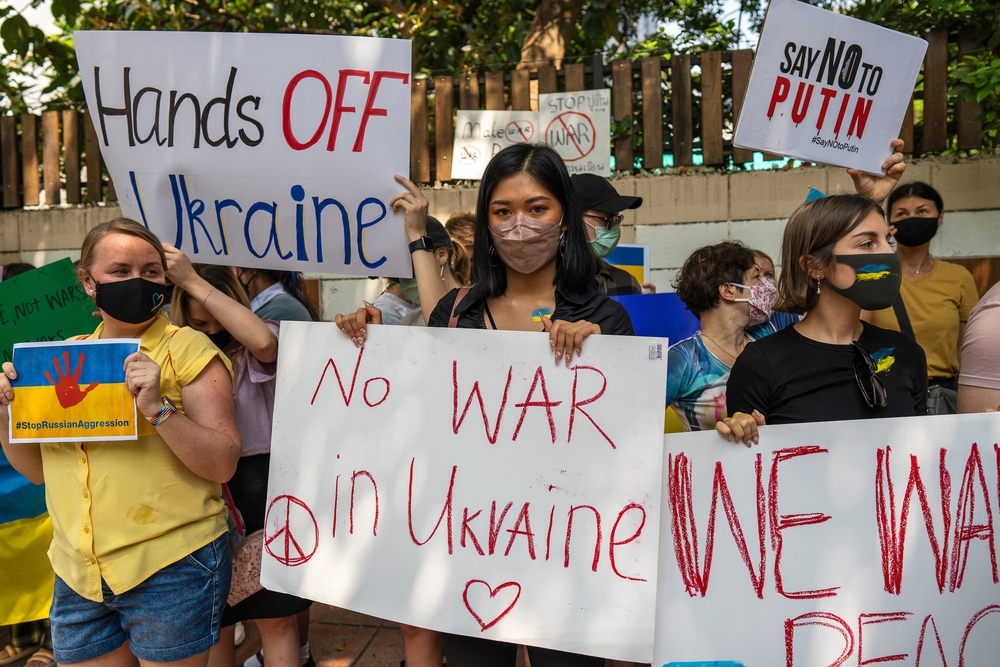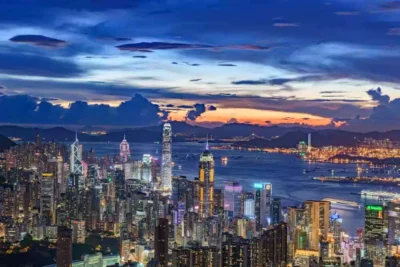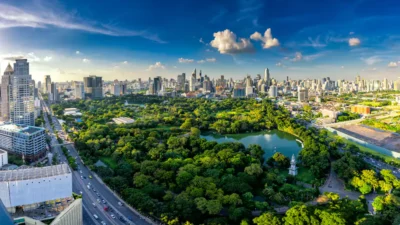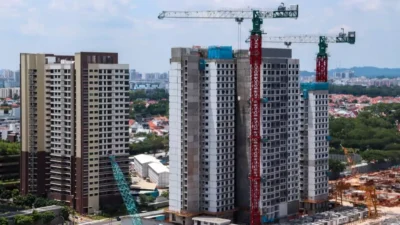Russians find refuge in Southeast Asia
As sanctions bite at home, Russian buyers are seeking asset safe-havens. And Pattaya, Phuket and Bali are among the Asian destinations reaping the rewards in real estate sales
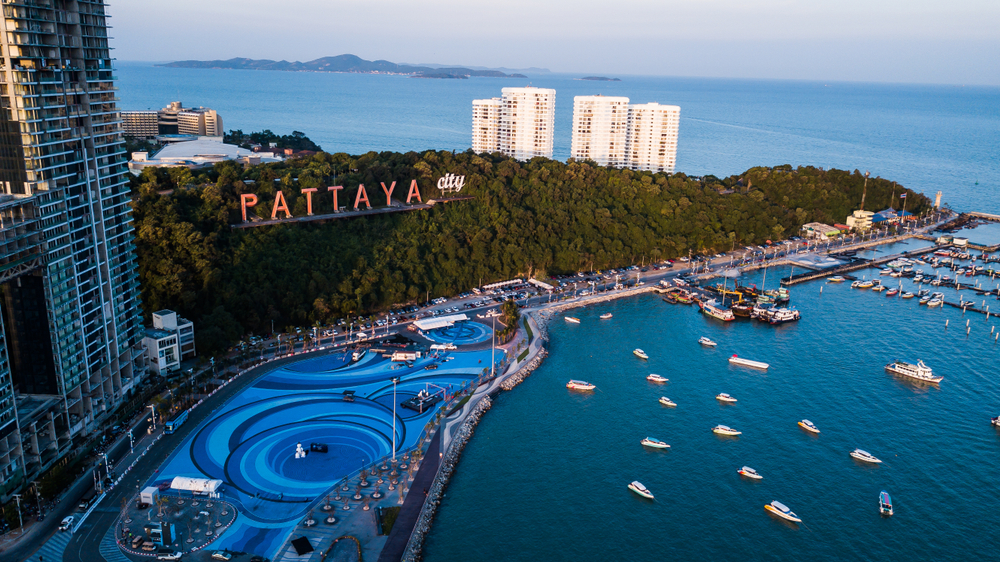
Russia’s invasion of Ukraine has resulted in its citizens being targeted by economic sanctions that rank among the swiftest and most punishing inflicted on any country to date.
In London, occupiers seized multi-million-pound mansions owned by absent oligarchs. On Thailand’s beaches, Russian families on long-awaited post-pandemic getaways suddenly found themselves stranded.
Western sanctions on Russian banks meant many Russian credit and debit cards no longer worked overseas. And numerous flights were grounded as insurers withdrew from Russian routes and carriers, including Aeroflot.
In March, rising oil prices caused by the conflict further fueled inflation, prompting doom-and-gloom predictions for a global economy only just regaining momentum following the pandemic.
Sanctions have produced few economic upsides—in Russia or elsewhere. Yet Southeast Asia’s property market has shown signs it could buck this trend, albeit in select destinations including Pattaya, Phuket and Bali.
Inquiries for properties in Thailand jumped 50 percent in March compared to a year earlier, and 200 percent in April, according to Tranio, a Moscow-based online real estate company focused on overseas property deals.
Bali recorded the highest inquiry growth in Southeast Asia, up 360 percent in the first quarter compared to the same period last year.
Uncertainty at home and punishing sanctions in many destinations overseas have fueled the trend, said Elena Milishenkova, Tranio’s commercial director.
In the first quarter, an estimated USD64.2 billion flowed out of Russia, according to estimates by the central bank in Moscow. This is 30 percent more than the figure for all of 2021, a sign the Ukraine conflict has prompted Russians to seek asset safety overseas amid economic uncertainty.
“In the past, this money would typically have been invested in popular European destinations including Spain, Greece, and Germany,” says Milishenkova.
More: Second-home investment destinations take the spotlight in Thailand
“Due to Western sanctions, Russian investors have focused on other destinations such as the United Arab Emirates, Turkey, Georgia, and Southeast Asia.”
She added that Thailand was expected to rank among the most popular destinations for Russian property buyers.
Laos and Vietnam have towed the Russian party line in the Ukraine conflict. And within the ASEAN region, only Singapore has followed western-led efforts to impose sanctions on Russia.
“Asia seems to be safe, secure and neutral for Russian people,” says Ekaterina Okisheva, managing director of Alpha International, a property agency covering Pattaya and Phuket in Thailand. “This is a big thing that Russian people take into account.”
In the past, Russian investors would typically have looked to popular european destinations including Spain, Greece, and Germany. Due to sanctions, they have focused on other destinations such as the United Arab Emirates, Turkey, Georgia, and Southeast Asia
Having already gotten used to buying “sight unseen” during the pandemic, growing numbers of Russians have been purchasing properties in popular Thai beach resorts without setting foot in the country, says Okisheva.
The key challenge facing Russians seeking to buy overseas since sanctions were imposed is completing payments. Many Russian banks have been locked out of the SWIFT international payment system including the country’s biggest lenders Sberbank and VTB. And few countries outside of former Soviet states use the Russian Mir payment system.
“But not all Russian banks have been affected,” adds Okisheva, adding that the paperwork and time required to complete such transactions have sharply increased. “There are also other ways around it, including cryptocurrency.”
While Russian buyers have found new ways to get around sanctions, their choices of destination in Asia have remained familiar. In Thailand, Pattaya and Phuket remain ever popular. So too are other beach resorts including Koh Chang and Koh Samui.
Pattaya has long been a favourite with Russians and its brand retains its shine. Indeed, the destination is growing its appeal. New family-friendly attractions have bolstered its offerings. Thailand’s government, meanwhile, plans to make the city a key part of its massive Eastern Economic Corridor project, which will add extra value to real estate investments.
“Pattaya is in a really strong position to bounce back from the pandemic,” says Matthew Fryar, the general manager of Avani Pattaya, one of the city’s most dynamic luxury hotels. “Investors can expect to see good returns here.”
In Indonesia, Bali continues to be the only destination on the map for Russian property investors, with Vietnam the next most popular location in the region.
In the first quarter of this year, these two countries along with Thailand together accounted for 94 percent of all Southeast Asia property inquiries, according to Tranio data.
“Bali has long been a popular destination among Russians, and the local property market is gaining momentum,” says Milishenkova.
More: Young, wealthy Thais transform Hua Hin into a hub for second home investment
In Bali, many developments are Indonesian-Russian joint ventures whose marketing targets Russians in their language to maximise uptake. Last year, despite the continuing downward pressure of the pandemic, apartment sales in Bali increased due in part to international buyers including a significant portion of Russians returning to the popular island, said Angra Angreni, a senior manager at the Jakarta office of PT CB Advisory, an international real estate advisory based in the United States.
““There have not been cancellations of unit purchases from Russian investors,” she says.
No sanctions have been imposed by Jakarta. And none are likely to be anytime soon. “There has not been a major impact on the property market. Far from it,” said Angreni.
Bali, like many destinations in Southeast Asia, has become a far-flung haven for Russian investors who have quickly found they are no longer welcome in many countries in the west.
The original version of this article appeared in Issue No. 172 of PropertyGuru Property Report Magazine. Write to our editors at [email protected].
Recommended
6 sights to spot in Jardine’s Lookout, Hong Kong
With its sumptuous harbour vistas, this low-density area is one of the most sought-after in Hong Kong
Meet the architect rethinking disability in urban spaces and how cities can be reimagined
Author David Gissen outlines his vision for urban development that takes the needs of disabled citizens into consideration
Why Asia’s mixed-use developments are the future of real estate
Dynamic integrated communities are fusing real estate with commercial, leisure, and other amenities
Transforming cities worldwide: Surbana Jurong’s vision for the future
Surbana Jurong excels in master planning, infrastructure, and urban development

